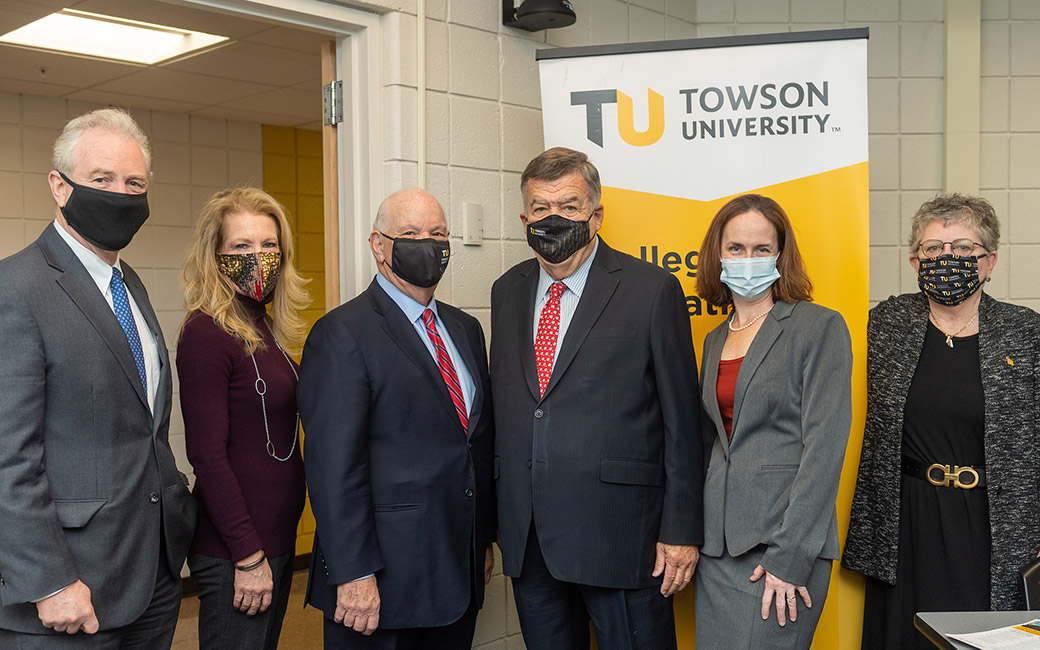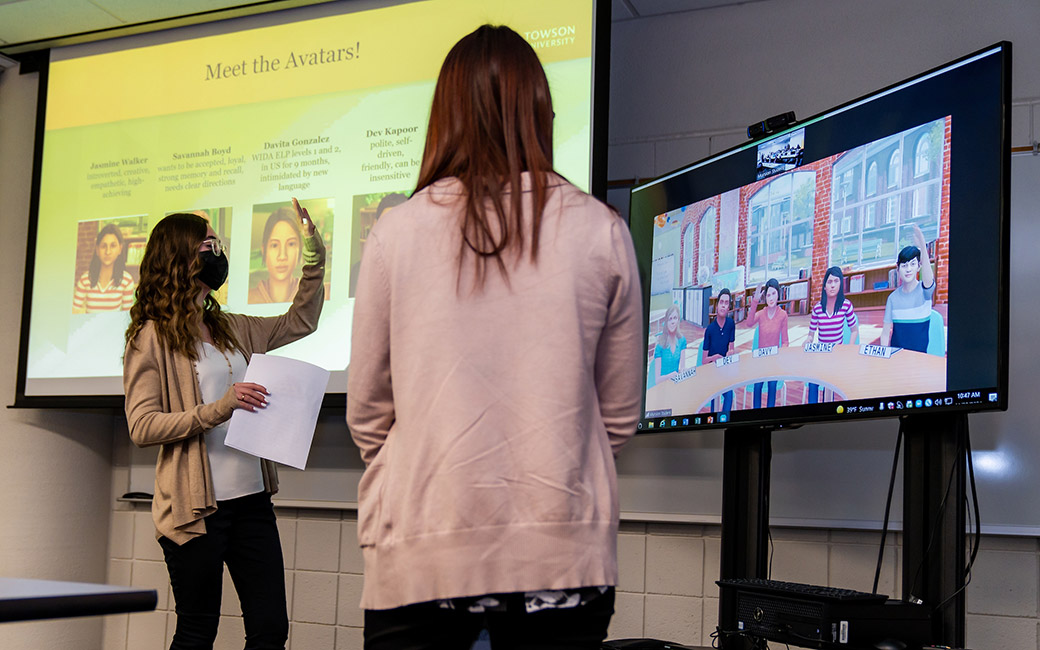Congressional visit highlights TU’s multilingual learner initiatives
TU hosts Sen. Ben Cardin, Sen. Chris Van Hollen and Rep. Dutch Ruppersberger after receiving $2.7 million grant from U.S. Department of Education Office of English Language Acquisition
By Rebecca Kirkman on November 29, 2021

As the country faces a shortage of K–12 teachers and the need for multilingual education increases, Towson University leads the way in addressing these issues through teacher preparation.
The need is especially great in Maryland, where English for speakers of other languages (ESOL) teachers are needed at all grade levels and the state is outpacing the rest of the Mid-Atlantic in the growing population of English language learners.
To learn more about how the university supports initiatives for multilingual learners, Sen. Ben Cardin, Sen. Chris Van Hollen and Rep. Dutch Ruppersberger visited the College of Education (COE) on Nov. 29. The visit follows the awarding this fall of a $2.7 million grant to support TU’s efforts.
“We are so deeply committed to diversity, equity and inclusion here at TU. There’s no completion gap on this campus, which I consider to be the key metric that illustrates a culture of inclusion,” said TU President Kim Schatzel during the visit.
“And as I often say: It’s not just about numbers. We represent what Maryland looks like. Towson in my mind is Maryland’s university,” she added. “I want to thank our representatives here today. We are happy to have you today and to have your support.”
The U.S. Department of Education (USDE) Office of English Language Acquisition grant was presented to Enhancing Literacy for English Learners: Valuing Assets Through Engagement (ELEVATE), which supports the university’s preparation of educators, including those who teach ESOL.
ELEVATE builds on a previous five-year, federally funded project in which TU partnered with Anne Arundel County Public Schools (AACPS) and AACPS’ largest contract school operator, the Children’s Guild.
“This program is a great example of collaboration between the university, the state and a county that has a growing population of English language learners,” said Sen. Van Hollen. “It’s addressing the English learner piece as well as the teacher shortage piece.”

In addition to supporting work with external partners, “we're also changing what we do in the college,” explained COE Dean Laurie Mullen, while demonstrating a virtual reality classroom simulation. “We use a simulation software called Mursion where students learn the most appropriate, research-based ways to interact with English learners with cultural competency.”
Mursion, available through SIMTeach@TU, is used by undergraduate students in Culturally and Linguistically Responsive Practices in the P12 Setting, a new foundations course made possible through the USDE funding.
Receiving the highly competitive federal grants “speaks to the quality of work being done here at Towson,” Sen. Cardin said. “Thank you for what you're doing for our future, because our children are our future.”
Along with the USDE grants, funding from the Kahlert Foundation supports a variety of initiatives aimed at multilingual learners, from professional development for in-service teachers throughout the state to delivering bilingual workshops to families focused on social–emotional learning. The Kahlert Foundation in 2020 awarded a record $3 million grant to advance the university's preeminence as a leader in preparing Maryland's teachers and health care professionals.
Towson University is the leading provider of education and health care professionals in the state. The Kahlert Foundation grant also includes $1 million toward construction of the new College of Health Professions building, which also received a $50 million allocation from the Maryland General Assembly in fiscal year 2022, with additional funding pre-approved for 2023 and 2024.
Referencing the university’s impact in the fields of education and healthcare, Rep. Ruppersberger noted how the university is making a difference in the lives of Marylanders.
“Towson has a lot to do with your future,” he said.